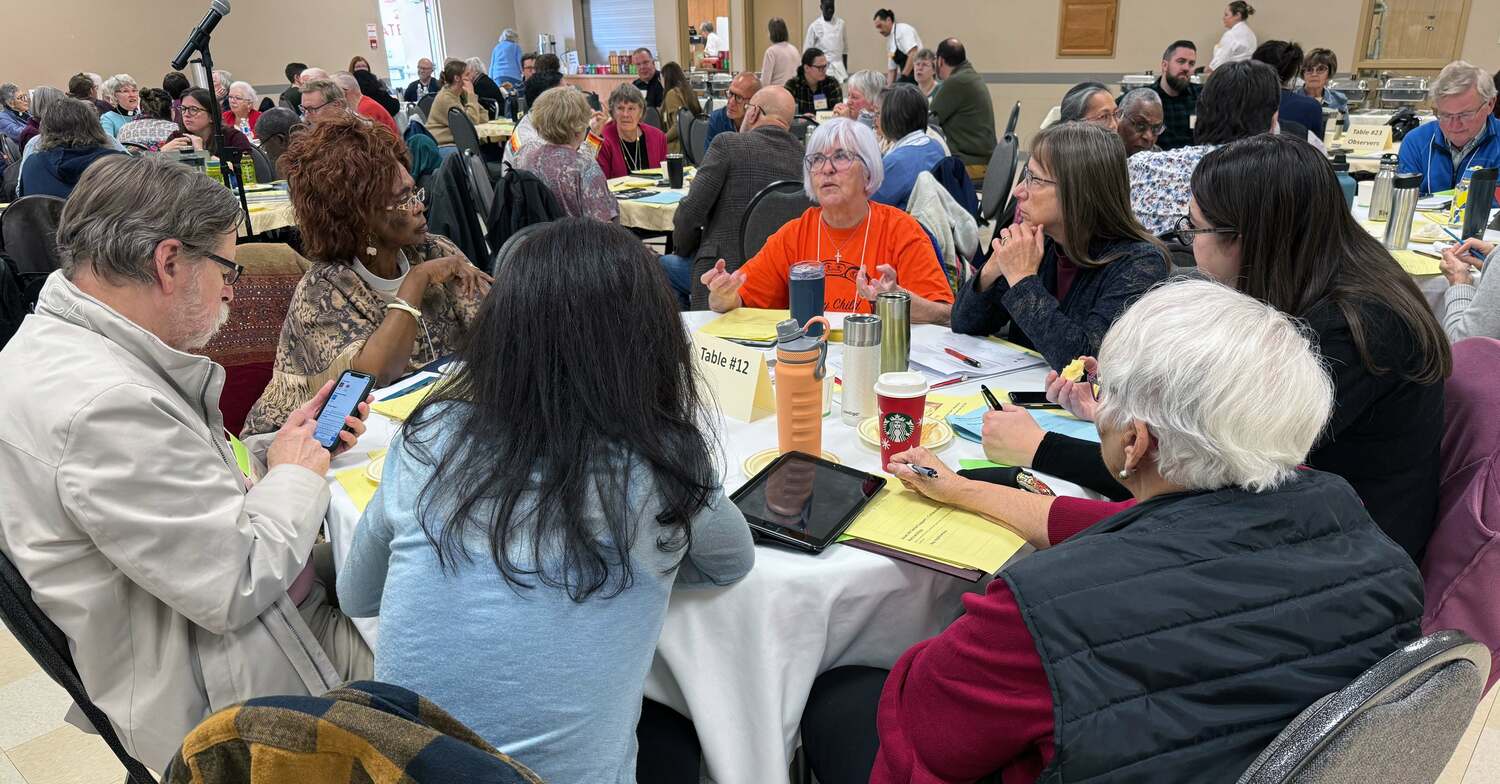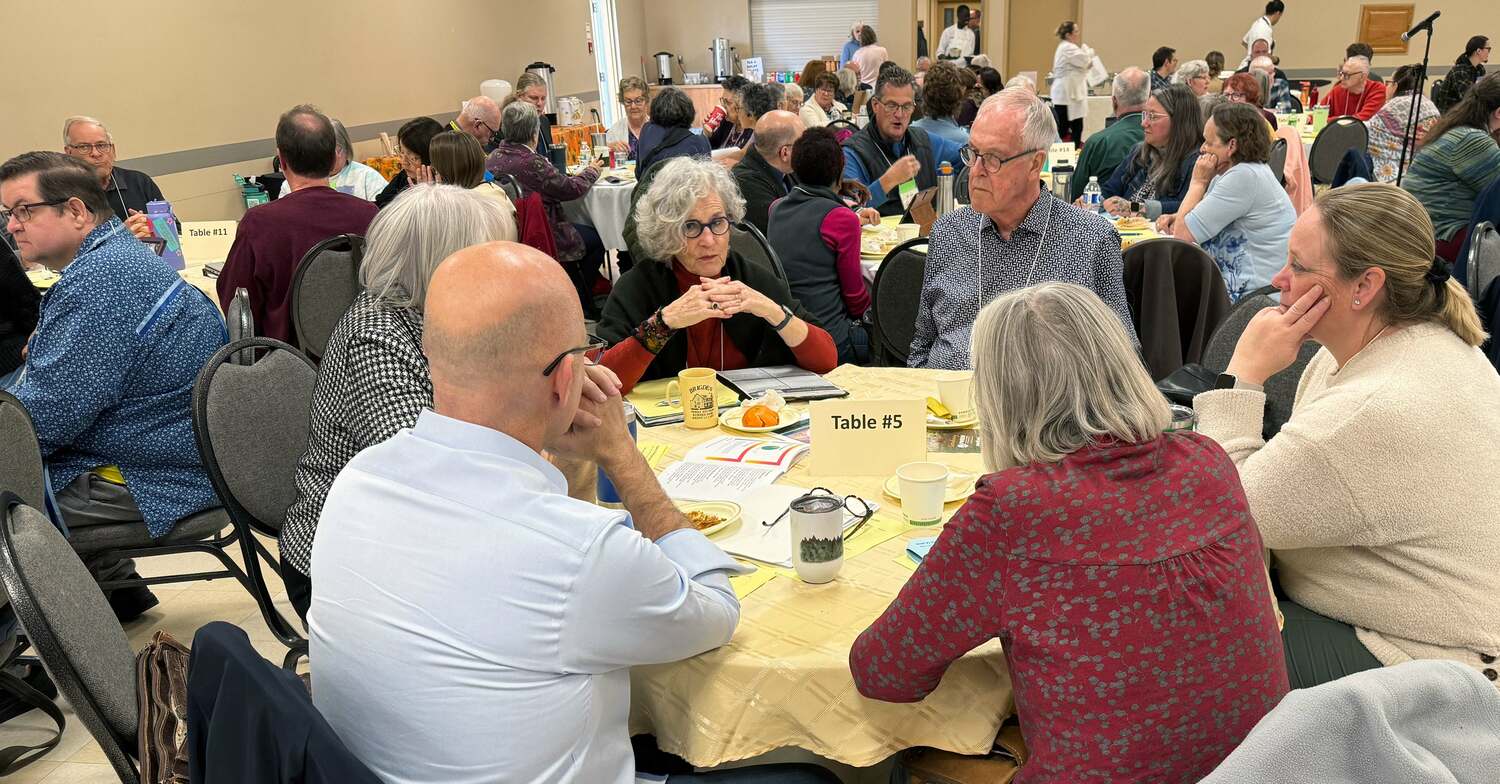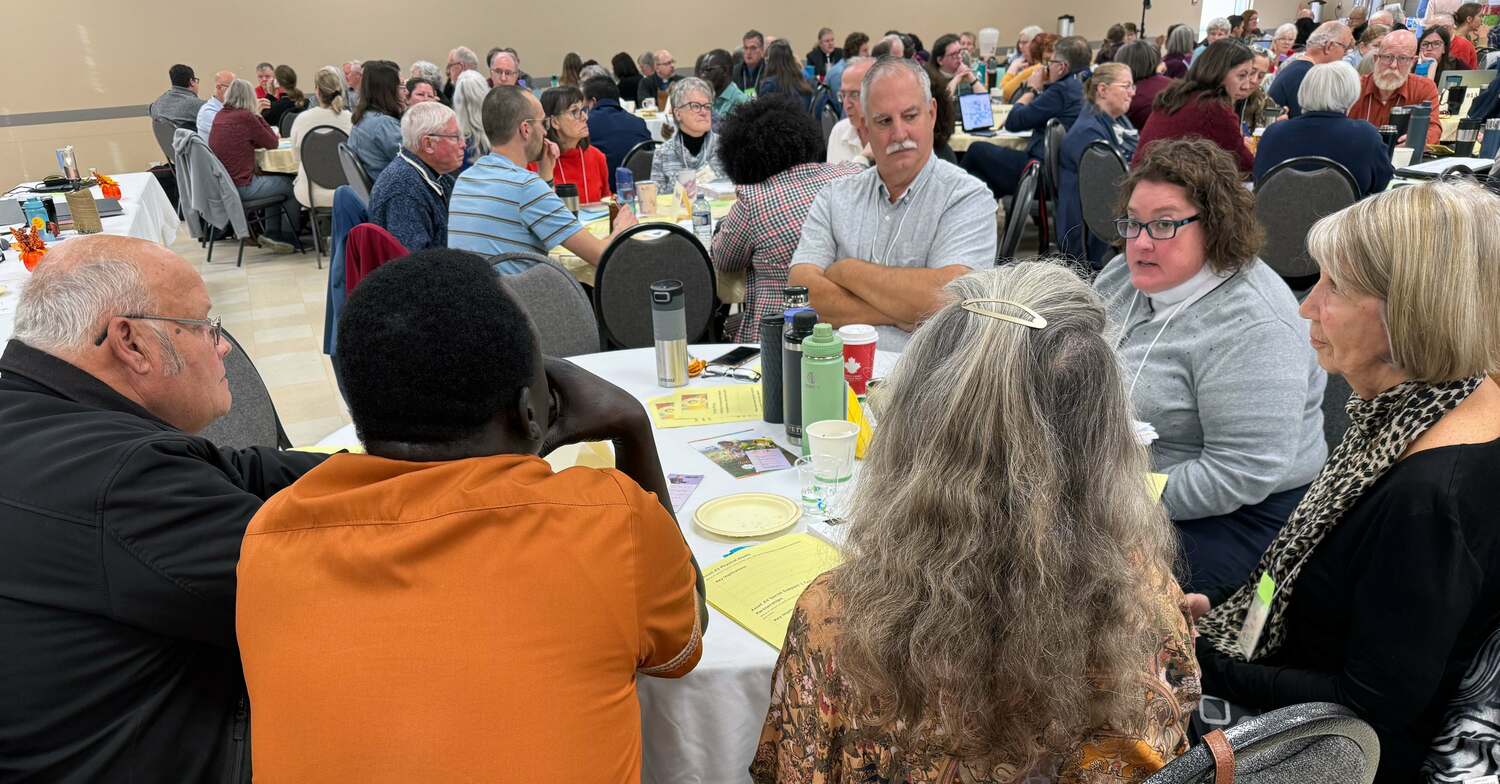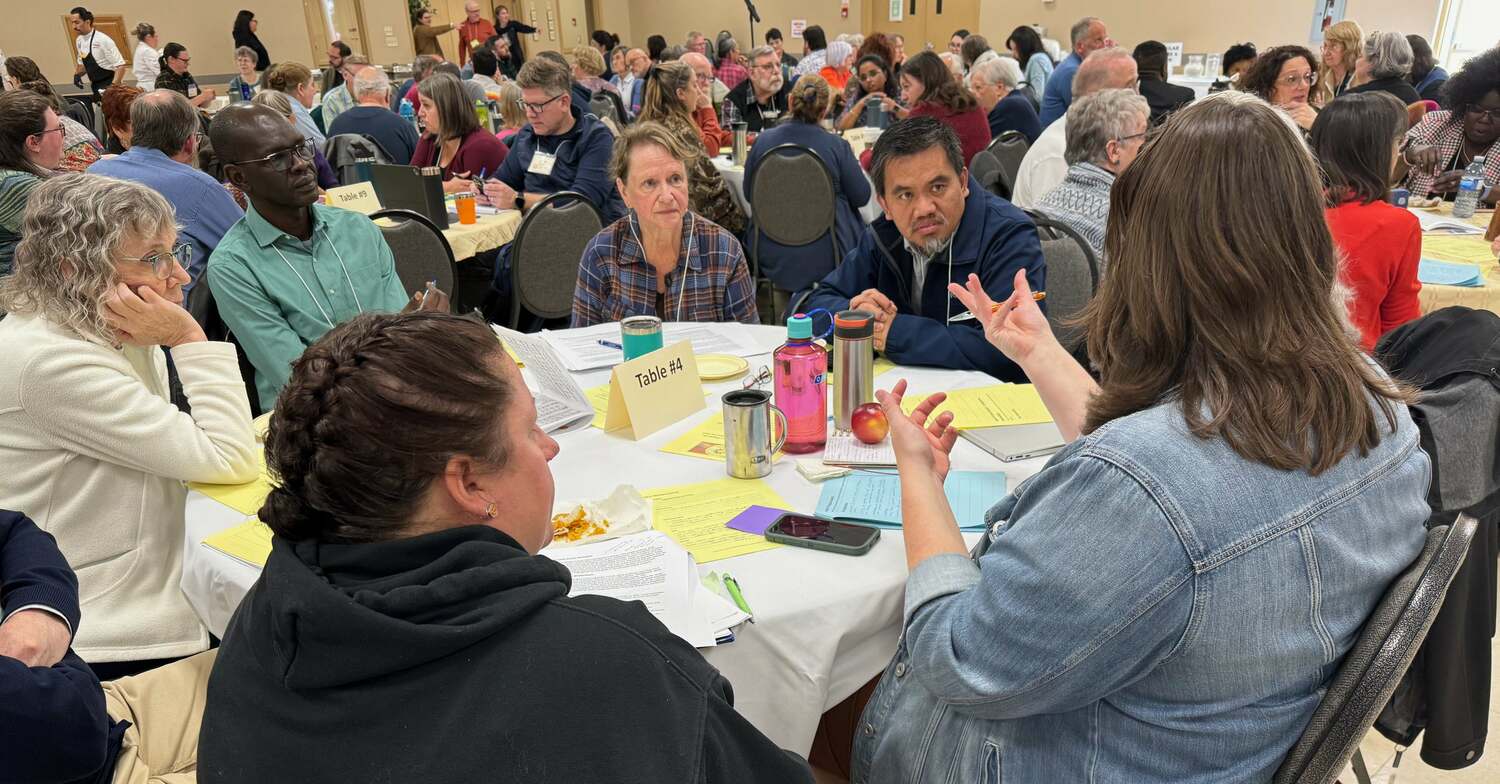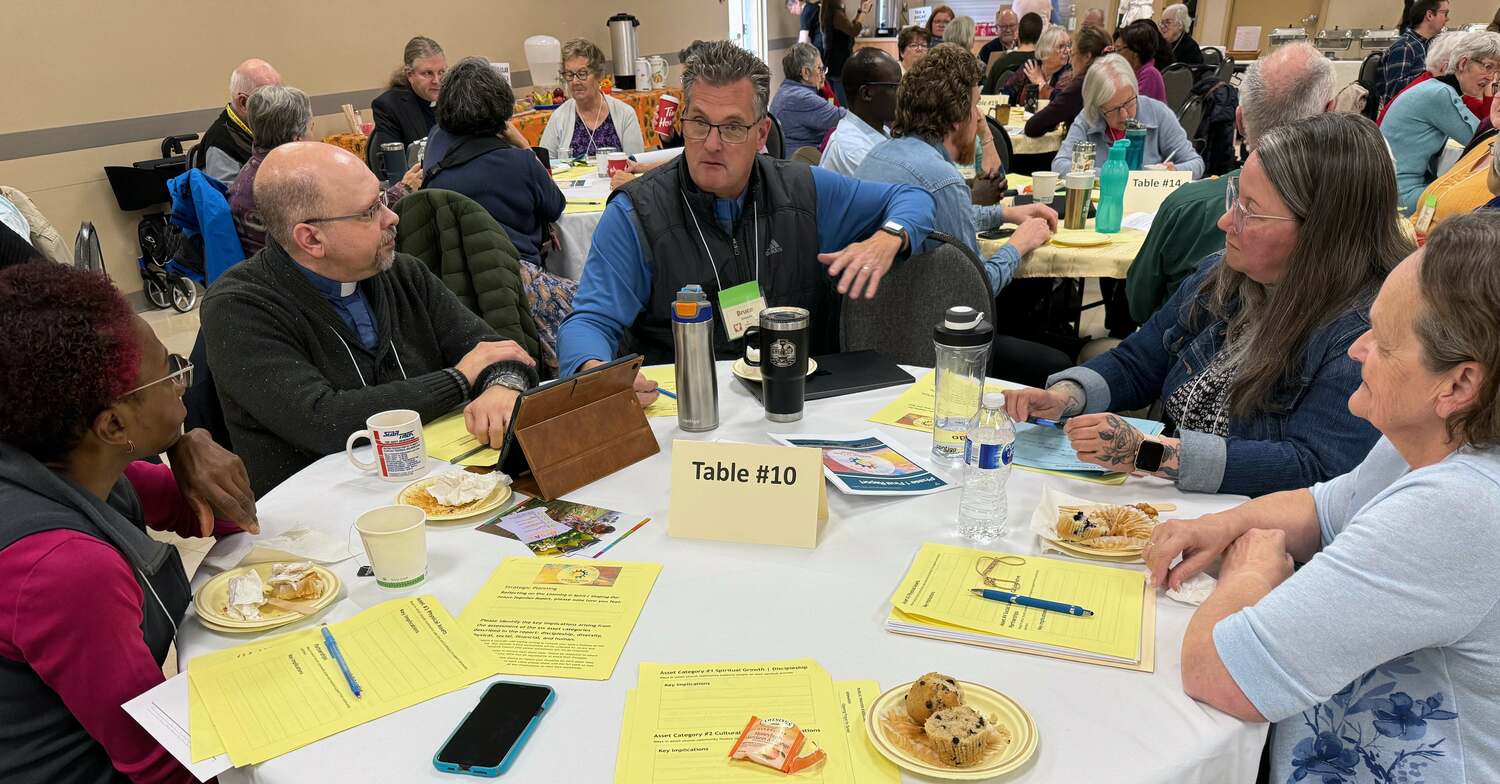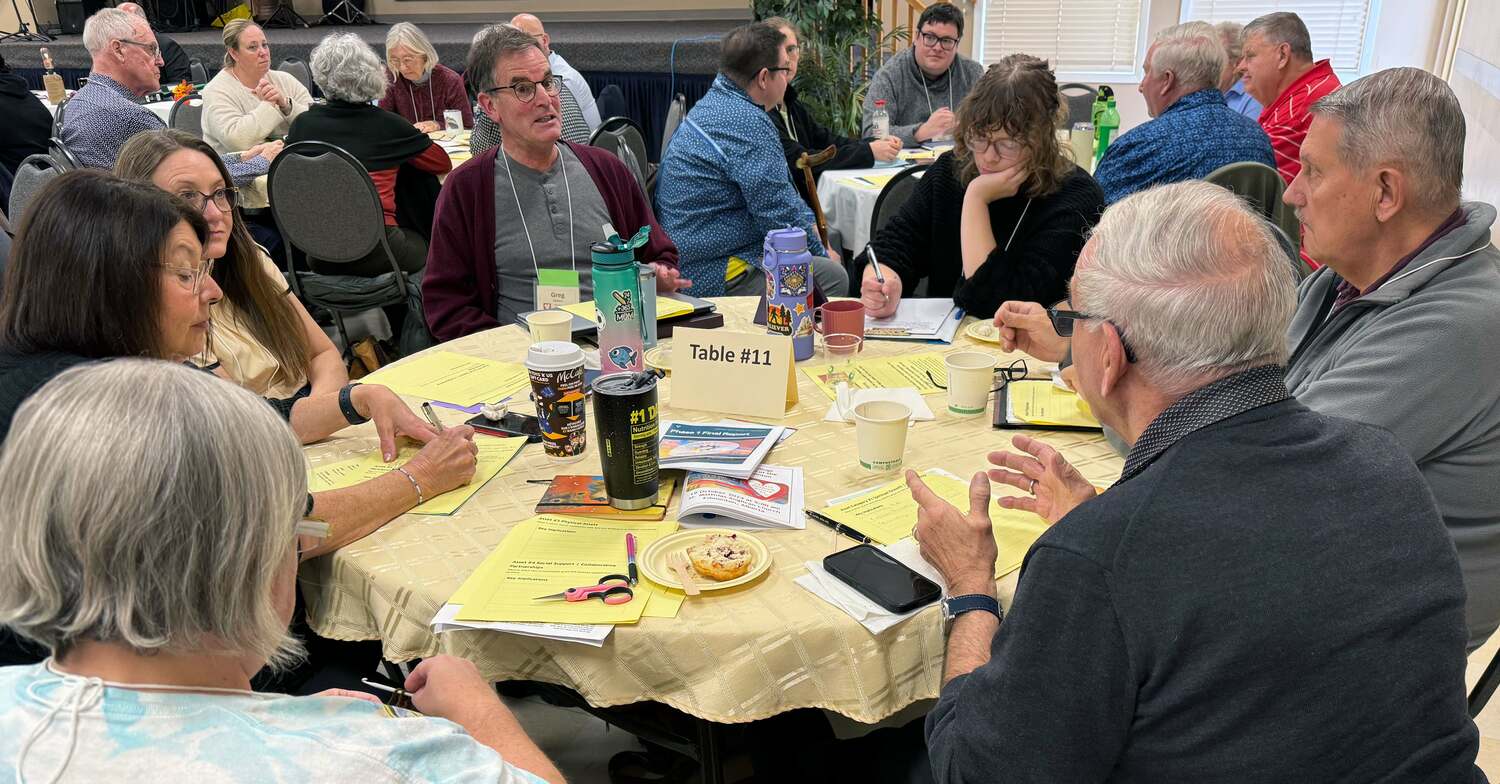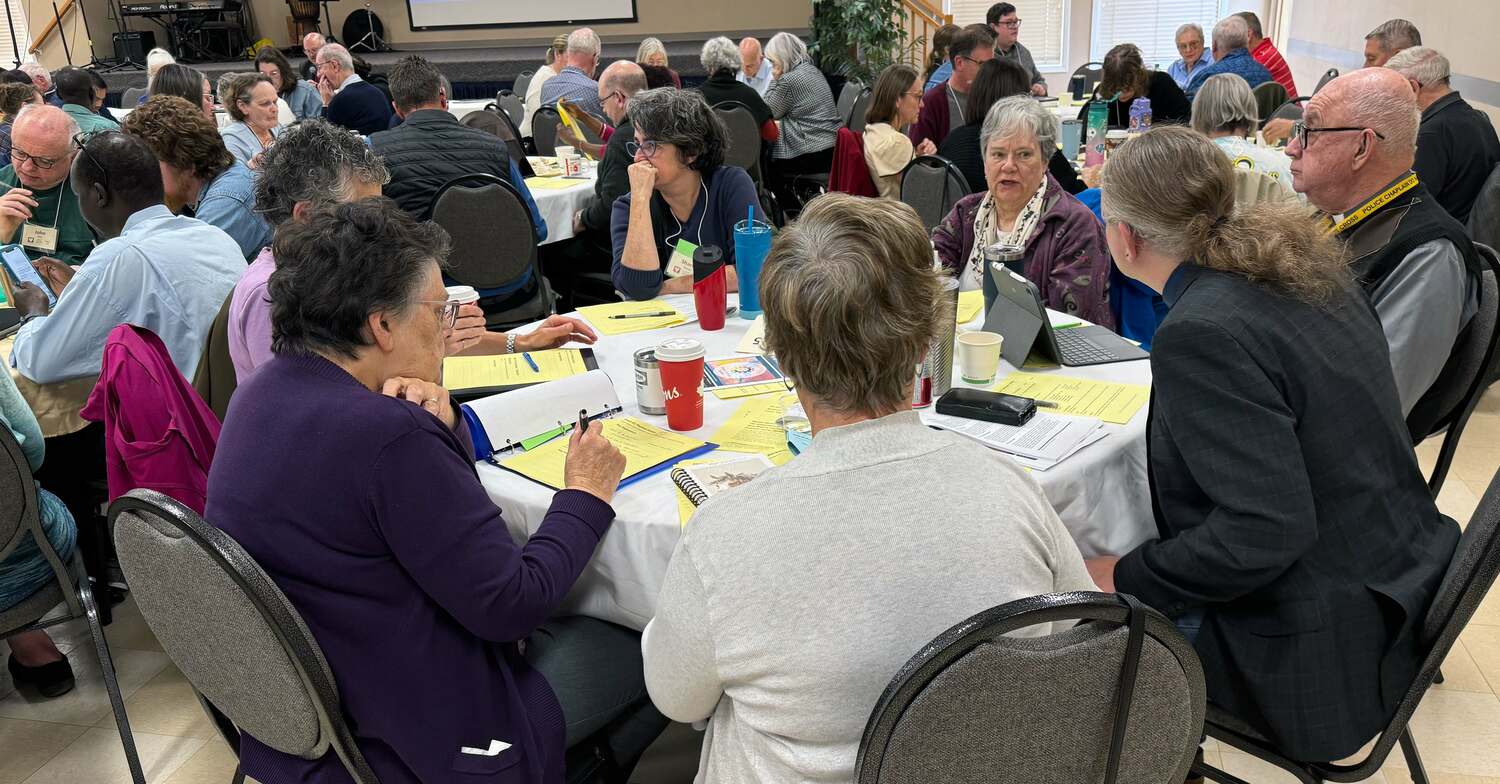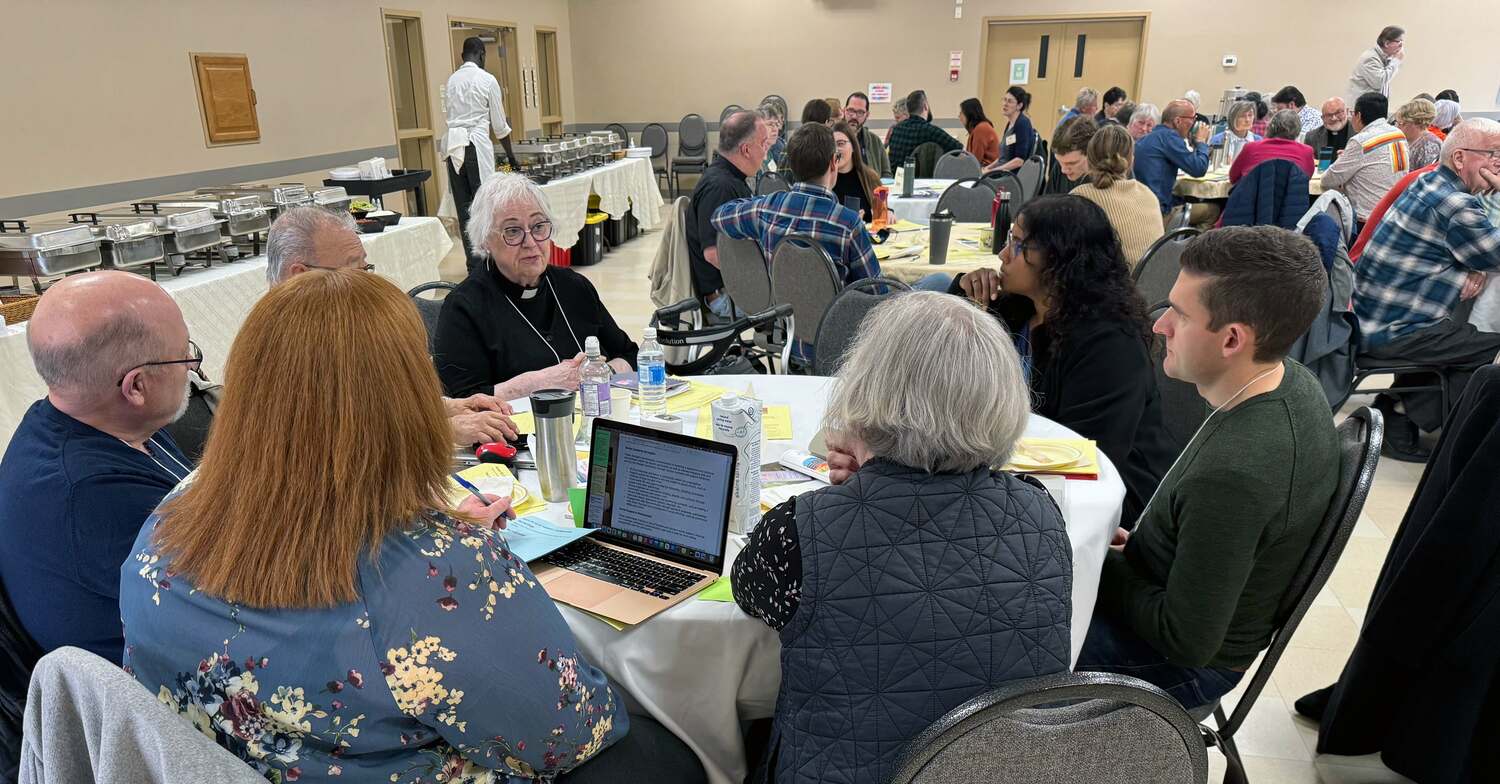The 69th Synod of the Diocese of Edmonton was tasked with interpreting the findings of the Listening in Spirit | Shaping Our Future Together Phase 1 Report, produced by Another Way Consulting.
From May to July 2024, Anna Bubel, principal consultant, Another Way, gathered quantitative data (2017 to 2023) from Synod Office records, responses from parish members to an online survey, responses to 1-on-1 interviews with 18 lay leaders and clergy, and feedback from engagement sessions with 46 parishes, plus Synod leadership, conducted mostly in-person, except for a few that were conducted by phone or videoconferencing. She summarised the results of the parish engagement sessions which were shared with parishes for their approval as “faithful reflections” of the opinions expressed.
Bubel used a health metaphor to reflect on the current state of the Diocese of Edmonton. She estimates that “33 percent of parishes are at the end stage of life and are in palliative care. One might say they are ‘actively dying.’” The legacies of these parishes, people and buildings (including the maintenance of cemeteries) would have to be carefully defined to honour the traditions and memories of these sacred spaces.
Approximately 42 percent of parishes are “experiencing chronic health issues, which will result in their demise in the medium term, if drastic health measures are not taken,” Bubel says.
“To get a new lease on life, these parishes need to make several key lifestyle changes: Investment into children's ministry and next-generation leadership, along with the consolidation of parishes to allow for full-time clergy and support of mission work (both from human and financial resources’ points of view) will be required.”
The final group of parishes, approximately 25 percent, are ”thriving.” Having experienced a rebirth after COVID-19, they have an attendance of more than 150 people on a given Sunday and most church communities in this grouping have children's ministries in place, and all have at least one cleric.
“This subgroup, says Bubel, “is not immune to the same threats and weaknesses of other parishes, but it has the bandwidth to address them. Perhaps, with the sale of properties and the mergers of parishes, apportionment rates could decline for these remaining parishes. This policy change might free them up to grow into their fullest and best selves.”
Three years ago, when the Rt. Rev. Stephen London became Bishop of Edmonton, he was advised the diocese was facing major financial challenges. In 2022, parishes had emerged from the COVID pandemic with roughly half the number of in-person attendees than they had in 2019.
But he assured Synod in his Bishop’s Charge on October 18, at All Saints’ Cathedral, “It is not just us (Mainline churches, in general, are aging and decreasing in numbers). We have two choices: we can either let events happen as nature takes its course, or we can make intentional decisions that allow us to stabilize to do our mission as followers of Jesus Christ.
“I do believe that God loves our church, even as we are struggling God meets us there. God walks with us and guides us forward. This is not the first time the church has struggled. The Synod in the Year of Our Lord 500000 will have a different set of conversations than the Synod in the Year of Our Lord 2024. We are just getting started, really, as the church. This is our moment. This is our time. God is with us. Emmanuel."
Bishop Stephen asked Synod to begin laying the groundwork for a good future by identifying the key implications of the Phase 1 report for the strategic plan, ideally a clear articulation of our “commitment to concrete decisions and actions that we will make over the next two years to hit our goal (by the next diocesan Synod) of creating a sustainable diocesan community that enables us to live out our calling (proclaim the Gospel, make disciples, further the Kingdom through a commitment to the Five Marks of Mission of the Anglican Communion) in a way that is healthy and vibrant, and not marked by fear and anxiety for the future.”
In table groups, Synod members assessed the discipleship, diversity and physical assets, as well as social, financial and human resources, of parishes and the diocese.
“We have to interpret the report and highlight the things important for us to work on. We do not have the capacity or resources to do everything. We must choose what is priority, relevant, actionable and pragmatically possible,” he said.
The key implications recorded by each table group have been compiled and will be presented to Executive Council at the end November.
“This big work (strategic plan) is something we must do together,” Bishop London said. “If you will walk, I will walk. We will walk together.”
Read the Listening in Spirit Phase 1 Report and view Anna Bubel’s Presentation to Synod










